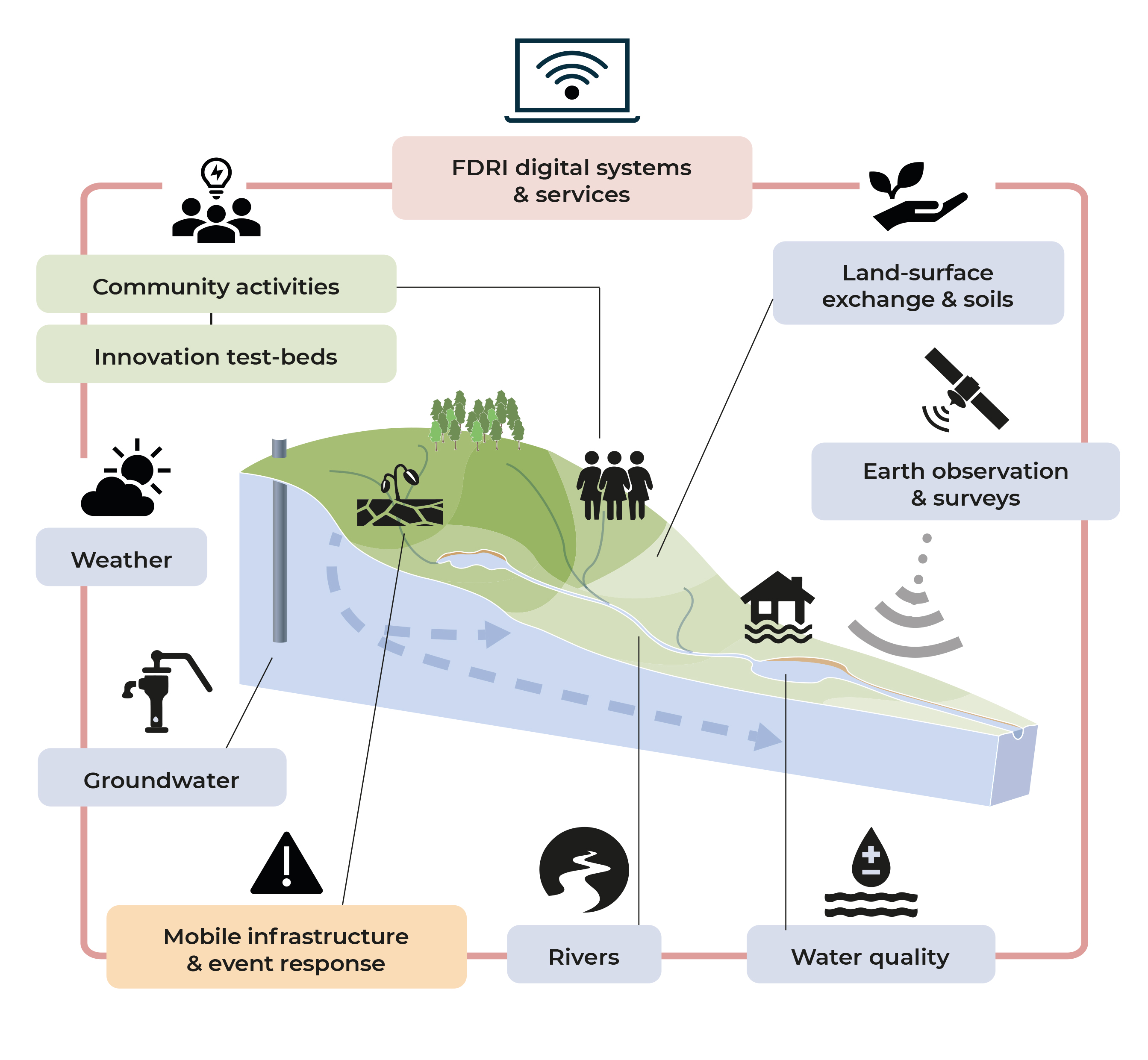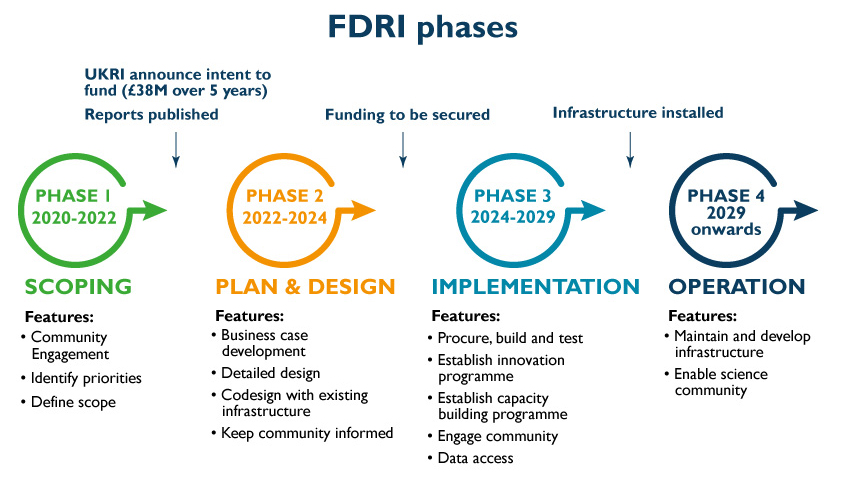An innovative long-term programme which, for the first time in the UK, joins up monitoring the whole hydrological system, to improve resilience to floods and droughts.
FDRI will advance our understanding of how, when and where floods and droughts occur, enabling improved predictions, robust assessment of impacts and implementation of appropriate mitigation measures. It will help ensure that the UK continues to play a leading role in hydrological research and innovation, driving solutions worldwide.
The £38 million project will establish a nationwide Floods and Drought Research Infrastructure, offering near real time data to the hydrological community. Led by the UK Centre for Ecology & Hydrology, the project will deploy instruments for observing our water environment – measuring evaporation, soil moisture, weather, groundwater and river flows.
Working with partners and groups across the UK, it will provide novel digital solutions to support data, including discovery, access and integration and help build capacity in the hydrological community through training and skills sharing.
Why is UKRI investing in FDRI?
Floods and droughts cause significant economic, social and environmental impacts and they are predicted to increase in intensity, frequency, and duration in response to changes in climate and human activity. The need for new science to underpin the UK’s preparedness and resilience to these extreme events has never been more pressing.
Without a significant investment in whole-system, hydrological infrastructure, evidence to underpin the UK's resilience to increasingly intense and frequent flood and drought events will be limited, and the costs and damages to society and the environment will spiral upwards.
This significant infrastructure investment was made possible by a 21-month-long NERC- and UKRI-funded scoping study that identified and prioritised research community requirements for an FDRI.





